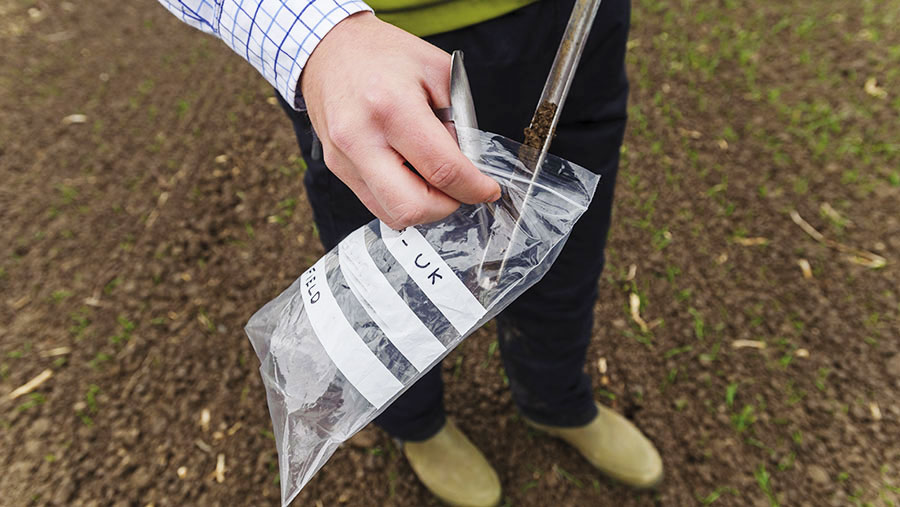Widespread uptake of SFI crucial to new NFU soil health strategy
 © Jason Bye
© Jason Bye Defra must secure widespread farmer uptake of the Sustainable Farming Incentive (SFI) in England to ensure food security, meet climate change targets and protect the environment, according to a new report setting out the importance of soil in food production.
The NFU’s Foundation of Food report outlines why good soil health is crucial to the nation’s farming systems and is essential to British food production.
The union has set out seven key policy areas the government must address to ensure the country’s soils can produce enough food in the face of growing concern over global supplies due to the Ukraine conflict, while also meeting environment goals and delivering “public goods”.
See also: Sustainable Farming Incentive opens for applications in England
Among the key asks is adequate incentives to get farmers on board with SFI and a clear picture of what future funding will be.
Speaking at the launch of the new report on Thursday 14 July, NFU vice-president David Exwood said it was crucial the SFI engaged farmers.
“Some of the core standards of SFI are about soil health and testing and we really support that. We agree the focus on soil health is absolutely paramount.
“The critical problem is we can’t see what SFI looks like in its totality. Farmers can’t see the whole payment rate. BPS [Basic Payment Scheme] money in the meantime is drawing down rapidly at a time when farm cashflow is probably under pressure like never before.”
Productivity
The NFU said it wants to see grant schemes that encourage the uptake of technology to boost productivity through reduced soil compaction and erosion.
Sussex farmer Mark Chandler said SFI needed to be more ambitious, by moving beyond incentives for just testing organic matter in the soil, to incentives for improving it.
“I am concerned that if we don’t understand the processes by which that improves soil health and carbon sequestration, then we are in great danger of taking a sample to get funding and not doing anything with that information.
“So what this report is about is trying to explain how crucial that one metric is to soil health and farm productivity.”
Mr Chandler said it had taken his farm five or six years to go from a conventional tillage system to a direct drill system with cover crops.
“If farmers are trying to transition from what is a traditional method of farming to one that is focusing on increasing organic matter, sequestering carbon and improving water quality, that doesn’t happen over night.
“It is why I think the entry and intermediate levels of SFI are not ambitious enough because, as BPS is dropping, it is not enough to support those ambitious risk-taking things that farmers will need to do to transition their soils from where they were to where they need to be.”
NFU’s key demands on soil policy
The union said agriculture is coming together to improve soil management practice, and future government policy should assist this by:
- Investment in research and innovation – assess impact of soil management practices on physical, chemical and biological soil health and then filter research through to farm level in a practical way
- Data collection and processing – reliable and accessible measurement, reporting and verification methods are needed to benchmark the soil situation against future progress and enable farmers and growers to make informed decisions
- Facilitating the voluntary carbon offset market – farmers need to have confidence that the rules and standards of the market are fair and accessible
- Incentives – the first phase of the Environmental Land Management scheme includes some soil health management options such as soil testing of organic matter, application of organic manures and cover cropping, but must now evolve and address nutrient management and reduced tillage, if appropriate
- Flexibility in tenancy agreements – this could promote tenants’ investment in the land, and in maintaining and managing good quality soil
- Sustainable peatlands – policies should incentivise a balance between soil protection and production, and not be overly complex to farmers
- Knowledge and exchange – a greater exchange of knowledge with initiatives such as Championing the Farmed Environment and Catchment Sensitive Farming, to help protect and improve soil health
